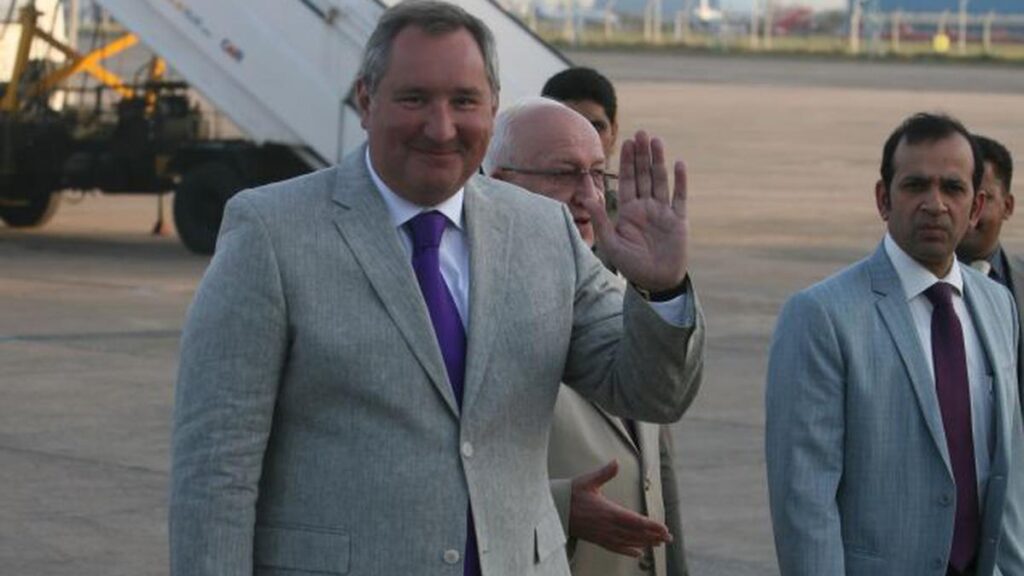Russian Deputy Prime Minister Overchuk
The arrival of Russian Deputy Prime Minister Alexander Overchuk in Islamabad marks a significant moment in Pakistan-Russia relations. This visit underscores the growing diplomatic and economic ties between the two nations amid shifting geopolitical landscapes. In this article, we will explore the context of Overchuk’s visit, its implications for bilateral relations, and the broader geopolitical significance.
Background of Pakistan-Russia Relations
Historical Context
Historically, Pakistan and Russia have shared a complex relationship influenced by geopolitical factors. During the Cold War, Pakistan aligned more closely with the United States, while the Soviet Union supported India. However, post-Cold War dynamics have allowed for a gradual thawing of relations.
Recent Developments
In recent years, both countries have sought to strengthen their ties through various agreements in trade, energy, and defense. High-level visits, joint military exercises, and collaborative projects reflect a commitment to enhancing bilateral cooperation.
Purpose of Overchuk’s Visit
Economic Cooperation
One of the primary goals of Overchuk’s visit is to discuss avenues for economic cooperation. Both countries have expressed interest in expanding trade and investment opportunities.
Energy Sector Collaboration
Given Russia’s significant oil and gas reserves, discussions around energy collaboration are expected to be a focal point of the visit. This includes potential agreements for energy supply, infrastructure development, and technology transfer.
Regional Stability
Overchuk’s visit also emphasizes the importance of regional stability. Both nations recognize the need for cooperation in combating terrorism and addressing security concerns, particularly in Afghanistan.
Key Meetings and Discussions
Bilateral Talks
During his visit, Overchuk is scheduled to hold talks with Pakistani officials, including Prime Minister Shehbaz Sharif. These discussions will likely focus on strengthening bilateral ties and addressing mutual interests.
Focus on Trade Agreements
Trade agreements aimed at increasing bilateral trade volume are anticipated to be a significant topic. The potential for new markets and investment opportunities will be explored.
Defense Cooperation
Discussions on defense cooperation may also take place, including joint military exercises and training programs, as both countries look to enhance their military capabilities.
Economic Implications
Trade Volume and Investment Opportunities
The potential for increasing trade volume between Pakistan and Russia could lead to significant economic benefits for both nations. This includes the exploration of new investment avenues in various sectors.
Energy Security
Cooperation in the energy sector will be crucial for Pakistan, which is seeking to diversify its energy sources. Russian Deputy Prime Minister support could help stabilize Pakistan’s energy needs, especially in light of recent energy crises.
Infrastructure Development
Potential Russian Deputy Prime Minister investment in infrastructure development can lead to improved connectivity and economic growth in Pakistan. This could enhance trade routes and facilitate easier access to markets.
Geopolitical Significance
Shifting Alliances
The growing ties between Pakistan and Russia reflect a shift in global alliances. As both countries seek to diversify their partnerships, this visit underscores a strategic alignment in response to Western policies.
Regional Dynamics
Overchuk’s visit comes at a time of heightened tensions in the region, particularly with the U.S. withdrawal from Afghanistan and the evolving security situation. Enhanced cooperation between Pakistan and Russia may contribute to greater regional stability.
China-Russia-Pakistan Triangle
The strengthening of Pakistan-Russia ties also plays into the broader China-Russia-Pakistan triangle, as these nations collaborate on various projects, including the China-Pakistan Economic Corridor (CPEC) and Russian Deputy Prime Minister.
Cultural Exchanges
People-to-People Ties
Cultural exchanges play a vital role in fostering understanding between nations of Russian Deputy Prime Minister. Initiatives aimed at enhancing people-to-people ties, such as educational programs and cultural events, can further strengthen bilateral relations.
Tourism Opportunities
The potential for increased tourism between Russia and Pakistan is another avenue for enhancing relations. Promoting each other’s cultural heritage could lead to mutual benefits in the tourism sector.
Challenges Ahead
Historical Skepticism
Despite recent progress, historical skepticism and lingering mistrust may pose challenges to the strengthening of ties. Addressing these concerns will be essential for building a lasting partnership.
Domestic Political Considerations
Both countries face domestic political challenges that could impact their foreign policy agendas. Navigating these internal dynamics will be crucial for successful collaboration.
External Pressures
The geopolitical landscape is continuously evolving, and external pressures from Western nations could complicate the relationship. Balancing these pressures while maintaining strong bilateral ties will be a challenge.
Future Prospects
Long-term Strategic Partnership
The potential for a long-term strategic partnership between Pakistan and Russia is promising to Russian Deputy Prime Minister. Continued dialogue and collaboration in various sectors can pave the way for deeper ties.
Expanding Cooperation
Future cooperation may expand beyond trade and energy to include technology transfer, agriculture, and healthcare. This holistic approach can lead to comprehensive bilateral relations.
Enhancing Regional Stability
A collaborative effort between Pakistan and Russia could contribute to enhanced regional stability to Russian Deputy Prime Minister. Joint initiatives to address security concerns can foster a more peaceful environment.
Conclusion
The landing of Russian Deputy Prime Minister Alexander Overchuk in Islamabad signifies a pivotal moment in Pakistan-Russia relations. As both nations look to strengthen their ties through economic cooperation, energy collaboration, and regional stability, this visit underscores the potential for a more robust partnership. By navigating historical challenges and focusing on mutual interests, Pakistan and Russia can build a fruitful and enduring relationship that benefits both countries and contributes to regional peace and stability.
Final Thoughts
As the world navigates an increasingly complex geopolitical landscape, the strengthening of ties between Pakistan and Russian Deputy Prime Minister may prove to be a crucial development. Both countries have much to gain from collaboration, and the coming days will reveal the extent of their commitment to a shared future.
